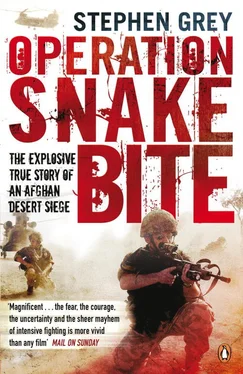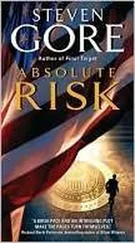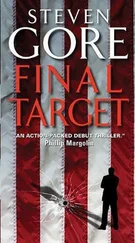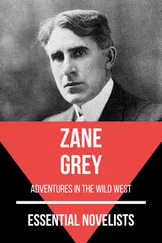It was true that the chain of command was confused. Effectively, he would have four bosses. First and foremost, British forces in Afghanistan were subordinate to NATO, and Mackay was in a chain of command headed by the American four-star general Dan McNeill. Secondly, as COMBRITFOR, the commander of all British forces in Afghanistan, Mackay would also be reporting in the British hierarchy, in the first instance to Lieutenant General Nick Houghton, the Commander of Joint Operations, at the UK’s Permanent Joint Headquarters. Thirdly, since the British mission was to support the government of Afghanistan, Mackay had to do, or at least take account of, what the Afghans wanted: in particular the Afghan president, Hamid Karzai, and his governor in Helmand. His last boss was the British ambassador in Kabul. Sir Sherard Cowper-Coles was officially in charge of all Her Majesty’s interests in the country and thus had a right to be consulted about military matters on behalf of the British government. Britain’s policy was of ‘civilian lead’ – the military acting in support of civilian objectives like reconstruction. So Mackay also had to take advice from a Provincial Reconstruction Team in Lashkar Gah that reported to Cowper-Coles.
The chain of command, then, was about as clear and neat as twigs in a bird’s nest. The real problem with this mess was that, when things went wrong, everyone could blame everyone else. No one truly felt as if they were in charge. Or had the authority to take real risks. Or show moral courage. It was a set-up for muddle-headed thinking.
Compared to the few hundred paratroopers who had begun the deployment to Helmand a year and a half before, Mackay now had a formidable force under his command. As he took charge, the part of Helmand where government troops ventured would be divided into three – with the north zone around Sangin, Now Zad and Kajaki run by 40 Commando of the Royal Marines, the centre around Gereshk run by a Danish battalion, and the south around Garmsir under the Household Cavalry Regiment. The 2 Yorks battle group, including Major Jake Little’s company, would work in parallel across the province with the Afghan army.
Most problematic for Mackay was not his fighting soldiers but the lack of aviation. Helicopters had made a critical difference to winning the insurgencies of Malaya, Oman and Northern Ireland. The helicopter most adapted for the heat and dust of Afghanistan was the heavy-lift Chinook, with its signature twin rotors. But Mackay would have just seven at his disposal, of which he could expect – on a good day – to have only four that were serviceable: two for emergencies and two for regular transport.
Sitting on the plane, Mackay put the politics and logistics out of his mind for a second. He had some more immediate issues to think through.
The last few months had been difficult ones for the Helmand Task Force. Twenty-eight soldiers had been killed in the previous six months, as well as two Danes allegedly killed by a British Javelin missile. And additionally from among his own troops from 52 Brigade, most of whom were arriving ahead of him in Helmand, there had already been two deaths – that of Corporal Ivano Violino, an engineer, killed on 17 September, and Major Alexis Roberts, a company commander with the Gurkhas, killed by a roadside bomb on 4 October.
All wars carry the risk of casualties and tragedy. So does normal army training, which had its regular share of fatal accidents. But Mackay got the sense from Whitehall that public support was shallow for this war. Any attempt to devise a long-term strategy to win the war would be pointless if the costs – human and financial – could not be sustained.
In the previous few weeks, an offensive by the departing brigade had not only swept through the green zone along the Helmand River, it had also established a series of new patrol bases that extended the area of the province under government control. Mackay was going to have to decide whether those lines should be maintained, how they could be consolidated, and whether his forces should try to push further.
And then there was the question that had faced every British commander since they got here: what should be done about Musa Qala?
Presidential palace, Kabul, late October
Sherard Cowper-Coles opened his black canvas briefcase and pulled out a map of Afghanistan that was folded inside. It was an RAF ‘Escaper’s Map’ printed on fake silk: the sort of thing used by downed pilots to navigate out of enemy territory. His was specially made and, printed in the languages of Central Asia, it said: ‘I am British and I do not speak your language. I will not harm you!’
They were in Karzai’s outer study in the palace. It was an elegant room – ordered but not opulent. The sofas and chairs were dark-stained wood, and, despite the secret nature of the talks, the windows were left open. Shrieks from peacocks outside would interrupt proceedings.
It was the usual crowd. In the centre were the key players: the president, General McNeill, Cowper-Coles and the US ambassador, Bill Wood. In the outer orbit were the key advisers – including Karzai’s chief of staff, national security adviser and head of intelligence.
The meeting was to debate a war. But no one seemed to have a map.
Karzai wanted to talk about Musa Qala. He said he had been on the phone with a certain Mullah Salaam, a Taliban commander. Salaam was from the Pirzai subtribe of the Alizai: the tribe that dominated northern Helmand.
‘I’ve been speaking to him on the phone. He says the people in Musa Qala are fed up with the Taliban. He was saying, “If you give me some weapons and help we can take Musa Qala. There’s no need for military forces.”
‘He is at home in his compound now,’ continued Karzai. Salaam was apparently already in conflict with other Taliban leaders. And they were threatening to attack his home.
The men who ran the Afghanistan pictured on Cowper-Coles’s map clustered round and tried to locate the spot where Salaam was holed up. It was a village called Shah Kariz, which lay between Musa Qala and Kajaki
‘We’ve got to find a way of helping him,’ said the president.
Cowper-Coles was cautious in his response, and for good reason. The one thing he knew was that Britain did not need another hasty and ill-planned military adventure in Helmand. That would undermine everything he was trying to do.
The ambassador had been in his post in Kabul now since May, after a hurried transfer from Riyadh, Saudi Arabia. The idea behind his appointment was to beef up Britain’s diplomatic presence, reflecting its now £1.6 billion-a-year commitment to Afghanistan. His position was now made the second-most senior ambassadorship to any country in the world.
What he came to discover was that British politicians were being misled. Endless reports from both the military and the diplomats had poured forth a stream of stories of progress. Yet the facts on the ground were at odds with these reports. The ambassador came to see that the country as a whole was slipping ever deeper into rebellion. Back in the spring, three permanent secretaries from the Foreign Office, the Ministry of Defence and the Department for International Development had toured the theatre. Their report, said UK officials, began: ‘Overall, we are optimistic.’ How exactly had they reached this conclusion? others wondered.
Cowper-Coles believed firmly his job was to send back the unvarnished truth. ‘I thought that one of the things that had bedevilled our engagement in Iraq was the failure to offer ministers honest advice,’ he told me when I met him later. He added: ‘You know, a lot of people had been rather naive about what could be done here in Afghanistan. There was still sort of a hangover of misplaced optimism.’
Читать дальше












